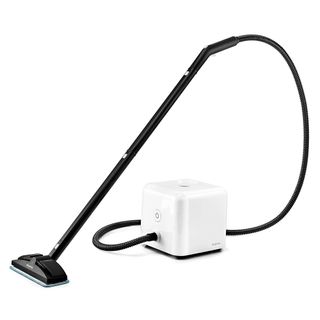 The submitting of a chapter petition, whether or not beneath Chapter 7, 12, 13, or 11, offers a second probability for most people and firms. In some circumstances, it might be applicable to liquidate your organization’s property, and in different circumstances, akin to when alternatives to develop a enterprise nonetheless exist, it might be applicable to reorganize the corporate’s money owed into reasonably priced funds revamped time. Chapter shouldn’t be a loss of life sentence; it’s merely a security web for people that dreamed massive and fell onerous. It’s an answer for formidable firms, massive or small, that took an opportunity and had unhealthy luck. In 2020, submitting for chapter could develop into the “new regular”.
The submitting of a chapter petition, whether or not beneath Chapter 7, 12, 13, or 11, offers a second probability for most people and firms. In some circumstances, it might be applicable to liquidate your organization’s property, and in different circumstances, akin to when alternatives to develop a enterprise nonetheless exist, it might be applicable to reorganize the corporate’s money owed into reasonably priced funds revamped time. Chapter shouldn’t be a loss of life sentence; it’s merely a security web for people that dreamed massive and fell onerous. It’s an answer for formidable firms, massive or small, that took an opportunity and had unhealthy luck. In 2020, submitting for chapter could develop into the “new regular”.
On March 27, 2020, Congress handed the Coronavirus Help, Reduction, and Financial Securities Act (“CARES Act”), a $2 trillion-dollar financial stimulus invoice to offer aid to people and entities adversely impacted by the world-pandemic inflicting COVID-19. The CARES Act offers for quite a few methods small companies can apply and procure emergency financing by grants and loans to cowl bills akin to payroll, hire, mortgage funds, worker advantages, and utilities. Extra info relating to these advantages could be discovered right here https://www.bergersingerman.com/news-insights/covid-19-legal-insights.
Nevertheless, many small companies could not discover this aid sufficient to steadiness the monetary burdens it’s mounting by the pandemic. These small companies should discover hope within the Small Enterprise Reorganization Act of 2019, Pub. L. No. 116-54 (2019) (the “SBRA”) which was signed by President Donald Trump on August 23, 2019, enacting new aid for eligible companies. Subchapter V of Chapter 11 of the Chapter Code for the reorganization of small enterprise debtors helps to streamline the method to reorganize and rehabilitate monetary affairs.
The SBRA was handed to enhance the present Chapter 11 legal guidelines, making it simpler for small companies to reap the benefits of reorganizing their affairs by submitting a chapter 11 chapter. The SBRA initially allowed for small companies with money owed of $2.eight million or much less to reorganize their money owed with out having to leap by lots of the burdensome and expensive hoops of a standard reorganization beneath the Chapter Code. The CARES Act makes the SBRA extra inclusive by rising the mixture debt cap from $2.eight million- to $7.5 million {dollars} to assist shield small companies which have been adversely affected by COVID-19.
Small companies with enterprise debt of as much as $7.5 million can now reap the benefits of the streamlined and diminished price reorganization course of supplied beneath the SBRA.
How does the SBRA work?
Small Enterprise Trustees:
Though a enterprise could proceed to function after submitting a petition, the SBRA offers for the appointment of a trustee to manage and oversee the case. Nevertheless, the trustee’s powers beneath the SBRA are considerably lower than these of a Chapter 7 Trustee, as they won’t get hold of possession of the debtor’s property or have the flexibility to promote a debtor’s property.
Creditor Committees:
The SBRA limits the flexibility of collectors to kind a collectors’ committee. These committees, which could be helpful in bigger reorganizations, may cause vital hurdles in a small debtor’s reorganization course of and could be expensive to the debtor, who’s ordinarily required to pay all of the committee’s bills.
Streamlined Plan Course of:
The SBRA streamlines the debtor’s potential to verify a Chapter 11 plan by 1) eliminating the necessity to file a disclosure assertion, 2) permitting plans to be confirmed with out the vote of an unimpaired class, 3) eliminating the Absolute Precedence Rule, and 4) allowing administrative claims to be paid extra time. Moreover, the SBRA permits a debtor to change loans on his or her principal residence, if the mortgage proceeds are used to funds the debtor’s enterprise.
Discharge:
The SBRA permits small companies to acquire a discharge both at affirmation or upon completion of its plan funds. It’s essential for small enterprise homeowners to be well-informed of the SBRA because it may present many firms with an equitable second probability.
Collectors must be aware of the modifications beneath the SBRA. As mentioned above, it streamlines the reorganization course of and eliminates obstacles. Lenders shouldn’t be blindsided by these modifications, notably, these modifications associated to the modification of sure loans and the therapy of post-petition financing. Lenders ought to search counsel early to know their rights upon a borrower’s submitting.
Small enterprise homeowners presently experiencing monetary difficulties as a result of pandemic, ought to use this time to study extra concerning the choices to guard your small business. The elevated debt cap for the SBRA beneath the CARE Act, together with the opposite aid supplied within the federal assist package deal is simply supposed to be in impact for one yr. Chapter is probably not the reply for some this time and different choices could also be obtainable, however it’s essential to be educated and suggested by educated counsel when planning a enterprise’s future on this new monetary panorama.
In case you have any questions relating to the SBRA or your organization is having monetary difficulties, you possibly can attain Michael Niles instantly at mniles@bergersingerman.com or 850-561-3010.












